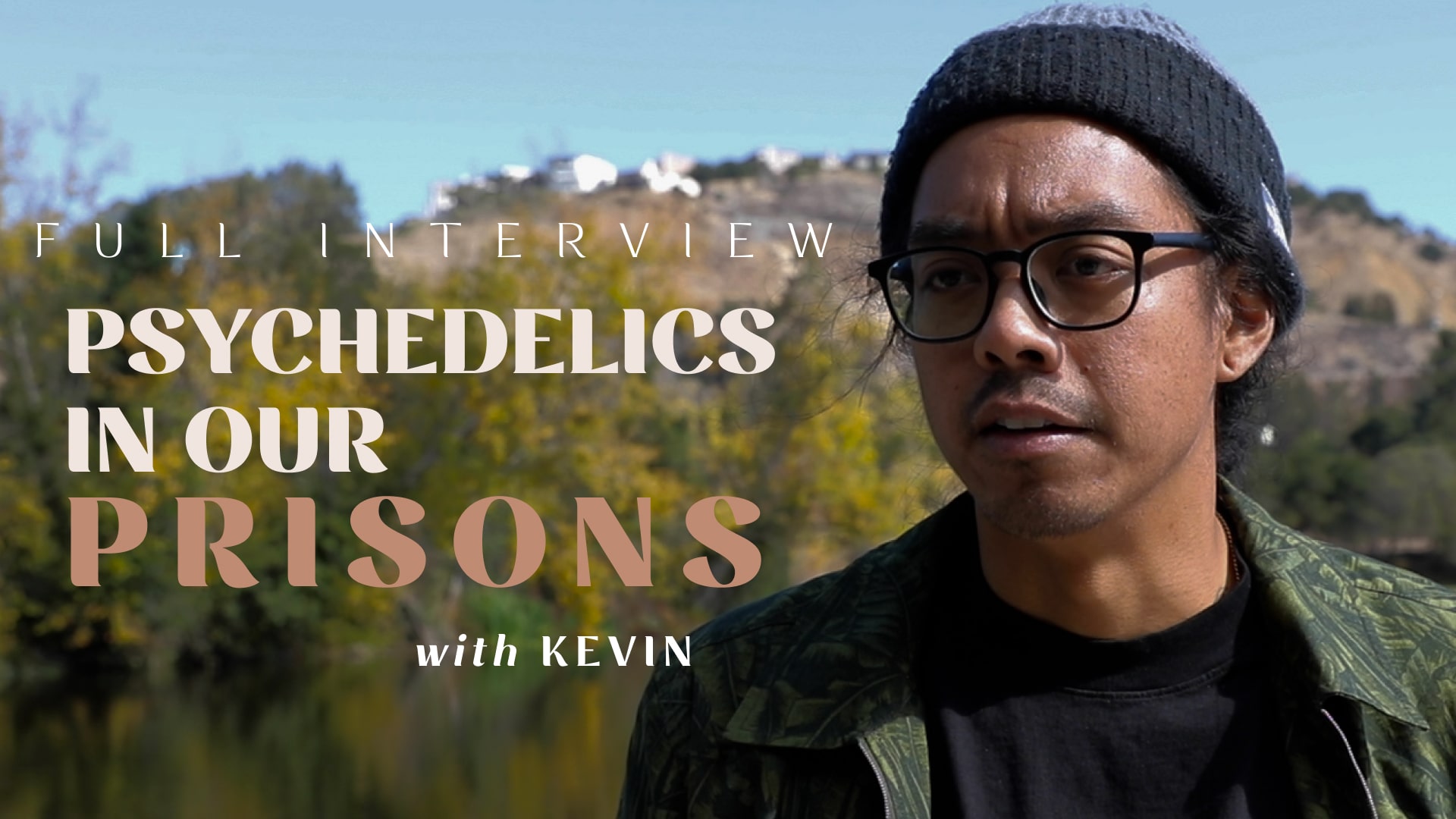Psychedelics In Our Prisons || Kevin
Kevin is a licensed psychiatric technician for the state of California. In this interview we dive into what it would look like to introduce psychedelics to our prisons.
Meet Kevin-Rejuven8Collective
My name is Kevin. I’m a licensed psychiatric technician for the state of California. I’ve been serving the marginalized populations for the last 12 years through state hospitals, state prisons and treatment centers.
I’m the founder of Rejuvenate Collective, a platform to advocate for safe, effective, accessible and natural mental health support.
I hold space for people that are interested in exploring healing properties of plant medicine, and I’m interested in creating community healing modalities in institutions like prisons and giving access to parolees.
You can also read about this: Inner City Trauma, Addiction & Microdosing || Medhani Vaughn
I’ve worked with all people from different walks of life, from celebrities to murderers to sex offenders. And, we all need to be mentally sound to progress.
Watch the Recap from our interview with Kevin:
Watch the full interview with Kevin
How are incarcerated people taken care of currently?
So they get there. It’s really easy to get something prescribed.
I feel like the doctors in the prison are not really equipped to deal with high emotions that they have no connection to. They probably just all learned how to deal with it in school. But they don’t really have that genuine experience to see what other people are going through, especially the prisoners.
It’s a lot of segregation, a lot of a lot of staff versus the inmates and it’s a lot of separation and it’s a negative environment overall.
There’s a group therapy. You know, there is a company that brings in dogs, animal therapy and there’s medication therapy, which is what I provide. There’s recreational groups. So it’s a lot of groups, but it’s barely scratching the surface. It’s effective, but it’s only temporary.
Can we use psychedelics to reform our prisons?
I believe not only will this help the inmates, but it will help the staff. The staff that are spending 16 hours a day in these prisons. You know, they’re spending more time in prison than with their families. And that takes a lot of toll on them.
I feel like a lot of staff don’t know how to cope and they don’t know how to release. So bringing all this into a community healing system in the prison, it’s so good for everybody. It’s a win win.
I think we could start with parolees, people that get out, maybe a pilot program. We can have therapists, psychotherapists, people that really have knowledge on how to navigate these medicines and follow them, because right now they’re just stuck with traditional therapists and doctors that only know one thing, which is Western medicine.
You can also read about this: Magic Mushrooms for Cluster Headache Relief || Nicole Foerster
What kind of support do parolees currently have?
The support is very limited. It’s like they’re set up to fail. A lot of them re-offend. The people that are on parole they’ll be back within like a couple of months for re-offending.
So they don’t really have a support system. A lot of them don’t have families. So they’re back on the streets and you know, a lot of them are addicts, so they’re going to return to drugs and then that’s it. So it’s a gap that needs to be bridged.
On holding space for psychedelics and plant medicine
I’ve seen a lot of enlightenment, a lot of positivity, a lot of open minds, a lot of changed minds. People are scared at first to explore, but once they do it, they’re like, okay, now it all makes sense.
They have purpose. I feel like their thoughts are more organized and they’re able to just have that flow state of just moving so free.
Why are you so passionate about psychedelics as medicine?
I got into it when my best friend committed suicide in 2018, but I’ve been working with plant medicine for about ten or 15 years. But I really got serious with it when my friend committed suicide in 2018.
And, you know, being a psychiatric technician, it should never have happened. I should never have let it happen. So this is something that I really hold dear to my heart and I really need to fight for this.
Support The Normalize Psychedelics Project
It’s our mission to create a platform for healing testimonials involving psychedelics to help shift the public narrative in a meaningful way. If this content has given you value, please consider supporting us.
